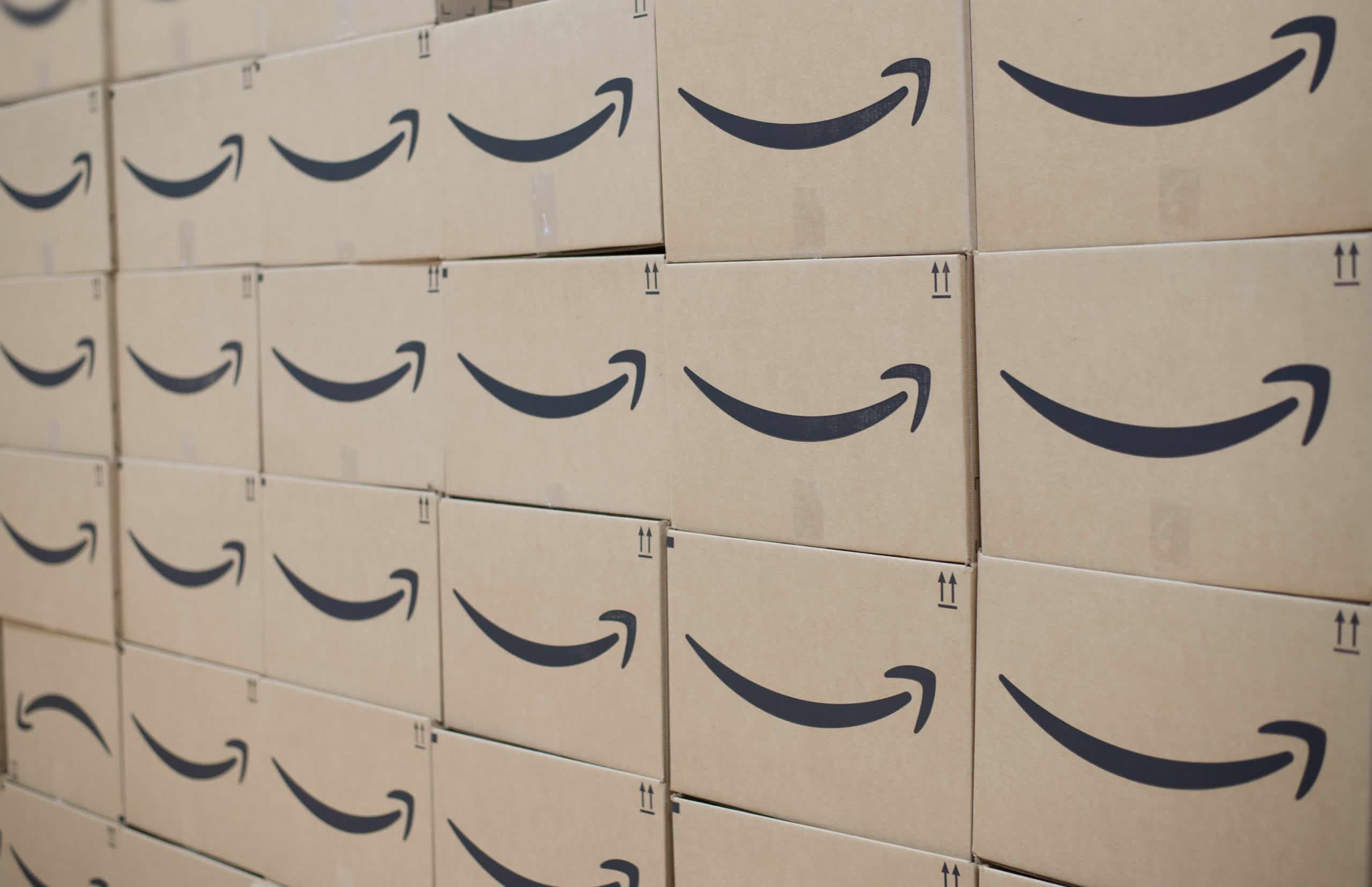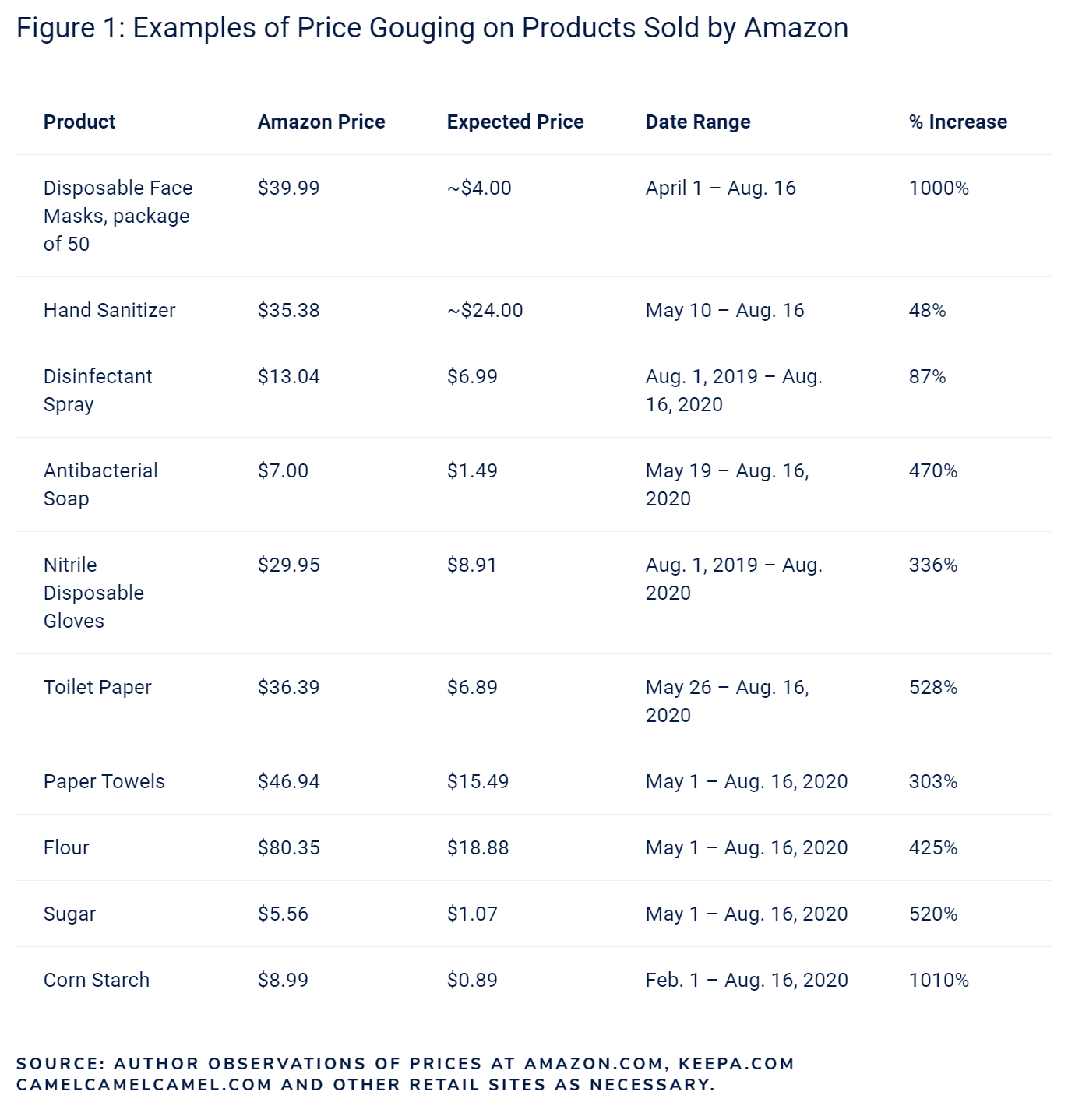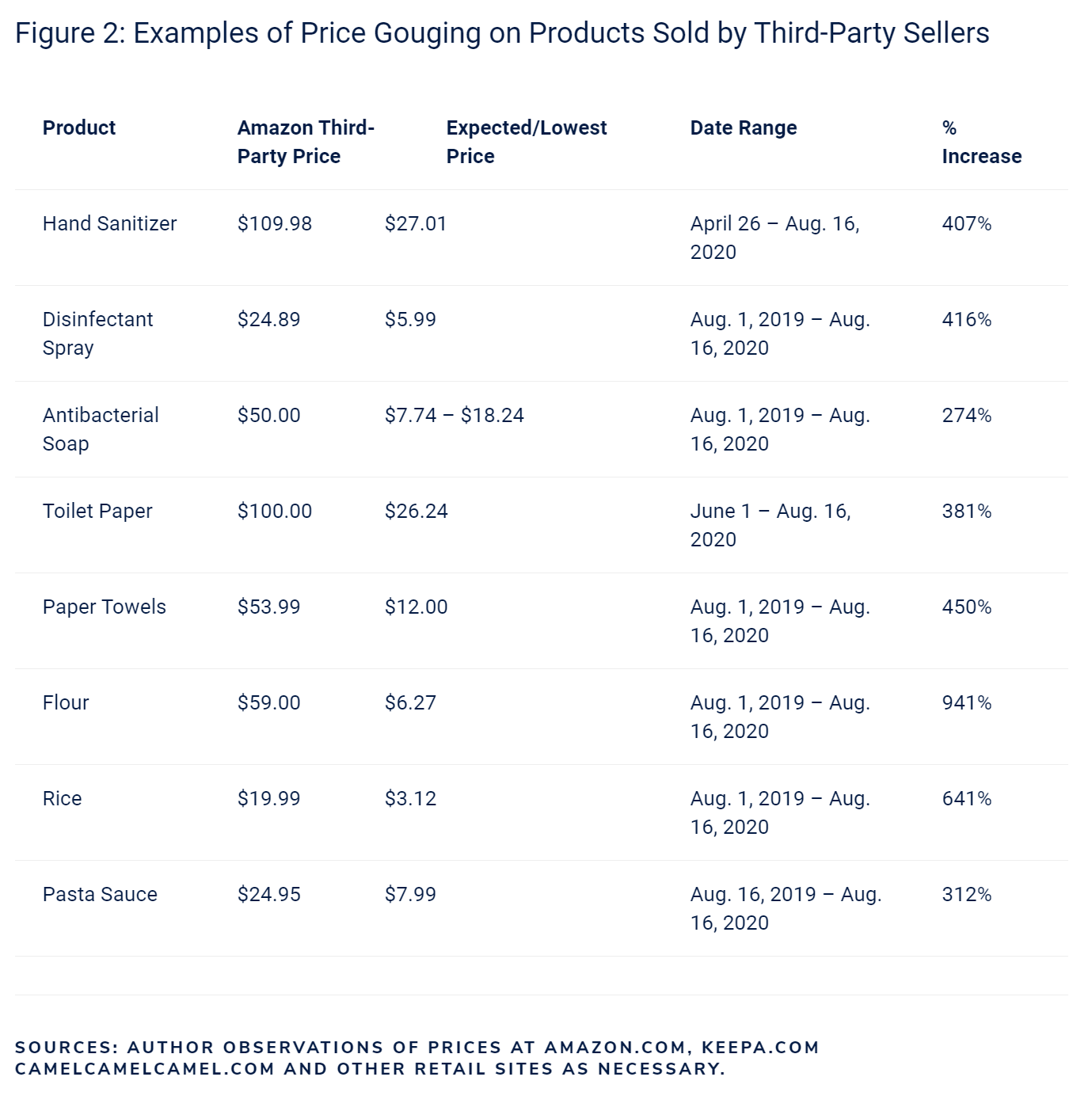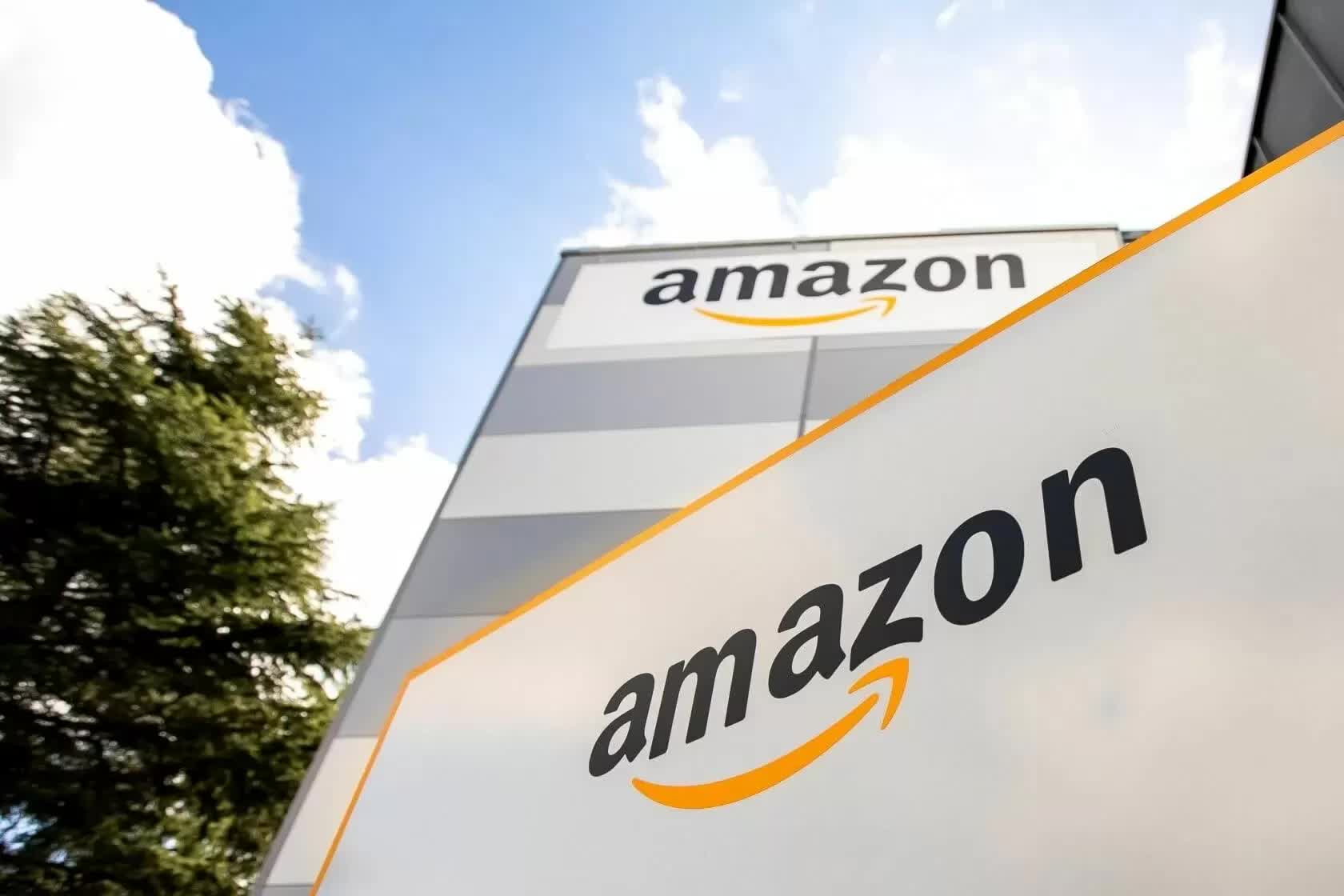A hot potato: Despite Amazon's public stance on price gouging, a new report highlights several key findings that seem to contradict the e-commerce giant's claims. The report finds that the company has not only engaged in price gouging on items sold directly by Amazon, but has also facilitated inflated prices for third-party sellers, all while misleading the public and law enforcement. The report highlights the need for price gouging laws at the federal level, and also calls for Amazon to reform its own pricing practices.

According to a damning report by Public Citizen, Amazon is being accused of excessive price gouging during the global pandemic. As more people pivoted to online shopping amidst stay-at-home mandates, Amazon's revenue soared -- but apparently so did some of its prices.
Reports of rising prices on Amazon surfaced early on and Amazon claimed it was working with the relevant authorities to curb a wave of rising prices, removing millions of items over false coronavirus claims, and even blamed a certain amount of unsavory third-party sellers on the site.
“There is no place for price gouging on Amazon."
Amazon even went on a hiring spree to help meet insatiable demand, while claiming it was continuing to combat price gouging on the platform. Amazon also went as far as to call for federal legislation regarding price gouging laws. However, in its report, Public Citizen has produced evidence that Amazon's actions may not have been as altruistic as the company has let on, despite having stated that "there is no place for price gouging on Amazon."
The "Prime Gouging" report details 15 essential products that have been sold on Amazon -- either directly by Amazon or through third-party sellers -- between the months of February and August. The report finds that these products have seen markups ranging from 76 percent to more than 1,000 percent.

For example, disposable face masks have seen a surge in price by as much as 1,000 percent. Per the report, a 50-pack of disposable masks was generally available for around $4 before the onset of the pandemic. Over the last several months, a similar package of 50 disposable masks has been sold for as much as $40, directly by Amazon.
Another notable offense seems to be corn starch, which typically carries an average price of $0.89 for a 6.5 ounce container of Clabber Girl Corn Starch, but has been sold for as much as $9. At the time of writing, this item is currently seeing prices between $5.69 and $11.00, with varying shipping charges.

Third-party sellers account for a significant portion of Amazon's revenue, as Amazon retains a percentage of the sales. It's a synergistic relationship, when Amazon's sellers are earning more revenue, so is Amazon.
It seems some of the more excessive prices on items available through third-party sellers has been flour, rice, and paper towels, with price increases of 941 percent, 641 percent, and 450 percent, respectively.
In response to its findings, Public Citizen notes that Amazon's price gouging is in violation of many state laws that prohibit price increases of more than 10 percent. In concluding its report, Public Citizen is now calling for a unilateral federal law to prohibit price gouging, as online shopping platforms are often able to dodge state laws.
"The absence of a federal law, combined with online shopping that transcends state borders, has created gaps in protection from price gouging, and has led to the potential for state price gouging laws to be ineffective at addressing online price gouging," says the report.

Specifically, Public Citizen proposes the following for a new federal law:
- Provide a clear and unambiguous definition of price gouging such as a 10 percent increase in prices during an emergency;
- Include a very broad list of products, goods, and services that would be covered;
- Establish significant civil penalties enforceable by the Federal Trade Commission and state attorneys general;
- Apply wherever price gouging occurs in the supply chain; and
- Be applicable during the current COVID-19 pandemic as well as any disaster or health emergency now and in the future.
Additionally, Public Citizen's report is calling for Amazon to reform its pricing and product listing practices, which tend to be nebulous at best, and flat out misleading at worst. To that end, it's recommended that Amazon not only publishes a comprehensive price history of items, but also an average price as well as the suggested MSRP.
Other recommendations include instituting a limit on how much an item can raise in price, ending the practice of creating new pages for items already listed (which makes it hard to assess pricing history), as well as providing a simple and transparent way for consumers to report problems with a product listing.
In a statement, an Amazon spokesperson noted that Public Citizen's report helped to identify a number of pricing errors, and reiterated that Amazon has removed over a million listings for suspected price gouging, while also having suspended some 10,000 selling accounts.
Image credit: Russ Vance
https://www.techspot.com/news/86721-amazon-accused-serious-price-gouging-throughout-pandemic.html